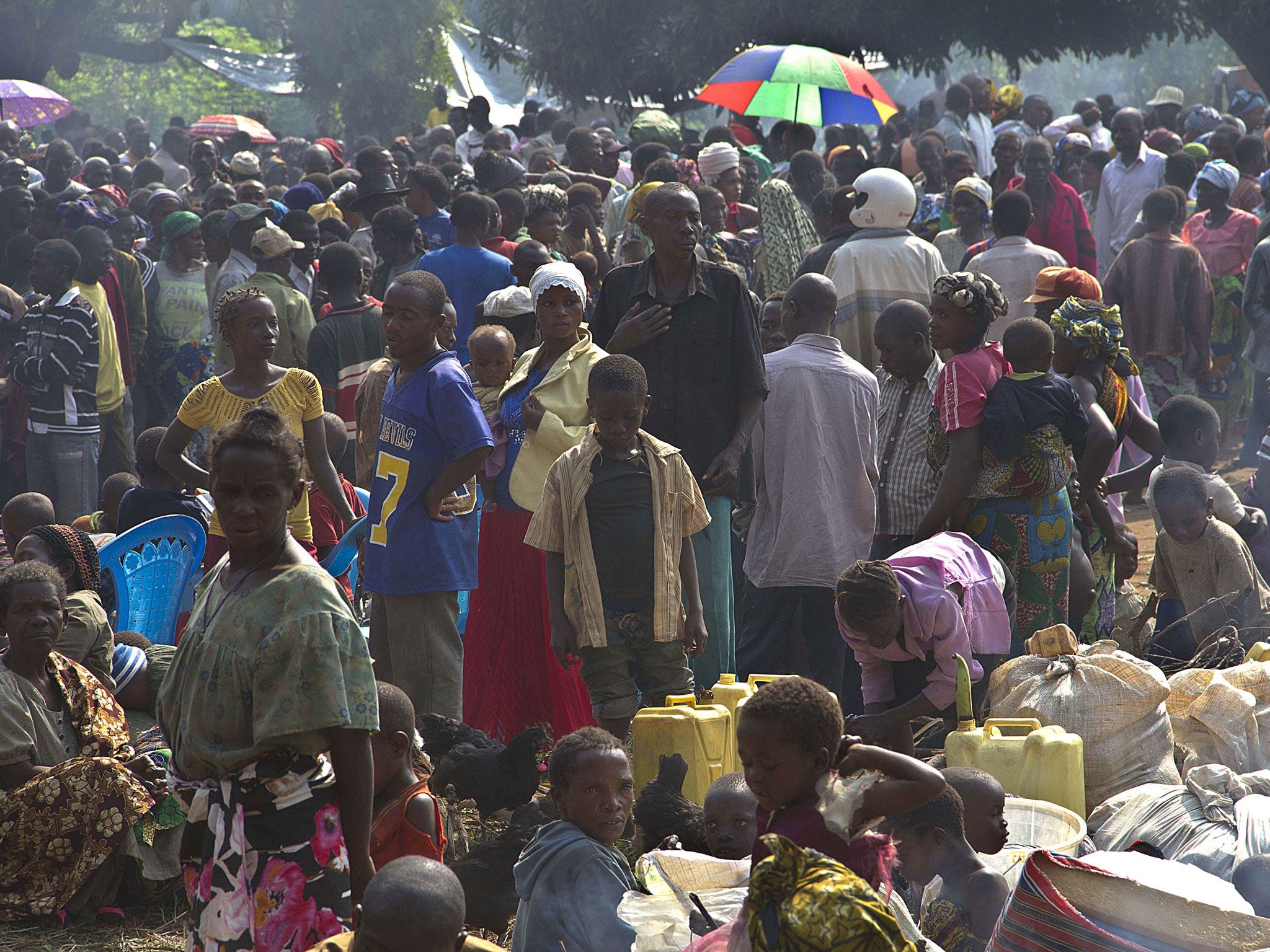Congolese refugees flood into Uganda after exiled rebel group renews attacks

More than 60,000 Congolese have fled to Uganda after a rebel attack on a town near the border, continuing an influx that is stretching humanitarian resources.
The Uganda Red Cross has already registered 41,000 refugees and 20,000 more have yet to go through that process, according to a spokeswoman, Catherine Ntabadde.
“Currently we are looking at about 65,000 people,” she said.
The refugees are entering Uganda though the frontier district of Bundibugyo, and many have found temporary shelter on the campuses of three schools there.
The refugee influx continues three days after a Ugandan-led rebel group attacked Kamango, a town just over the border, killing some occupants, according to Ugandan military officials who are concerned the rebels are about to launch a major assault on Ugandan territory.
The rebel group – the Allied Democratic Forces – had been hiding out in the jungles of eastern Congo for years since it was ousted from Ugandan territory. The group was formed in the early 1990s by Ugandan Muslims who said they had been sidelined by the policies of President Yoweri Museveni and who wanted to rule Uganda according to shariah.
In the 1990s the rebels staged deadly terrorist attacks on Ugandan villages as well as in the capital, including a 1998 raid in which 80 students were massacred in a frontier town. A Ugandan military assault later forced the rebels into eastern Congo, where many rebel groups are able to roam freely because the government has only limited control so far from the capital.
Ugandan military officials have been warning about the rebels’ resurgence for several months, and they now believe the rebels could be plotting an attack on Ugandan territory.
The rebels have largely been quiet over recent years, staging sporadic attacks on towns in eastern Congo and against Congolese military units. Angelo Izama, a Ugandan analyst who runs a regional security consultancy, Fanaka Kwawote, said the attack by a long-dormant group highlighted eastern Congo’s precarious security situation and the need for an ambitious “political solution” backed by Uganda and Rwanda, which in the past have sent troops into Congo in pursuit of rebels hiding there.
Increased rebel activity so close to the Ugandan border could hamper its young oil industry even before the first drops of oil flow. Large quantities of crude have been found on the Albertine belt along the border, and oil companies are drilling for more.
Join our commenting forum
Join thought-provoking conversations, follow other Independent readers and see their replies
Comments